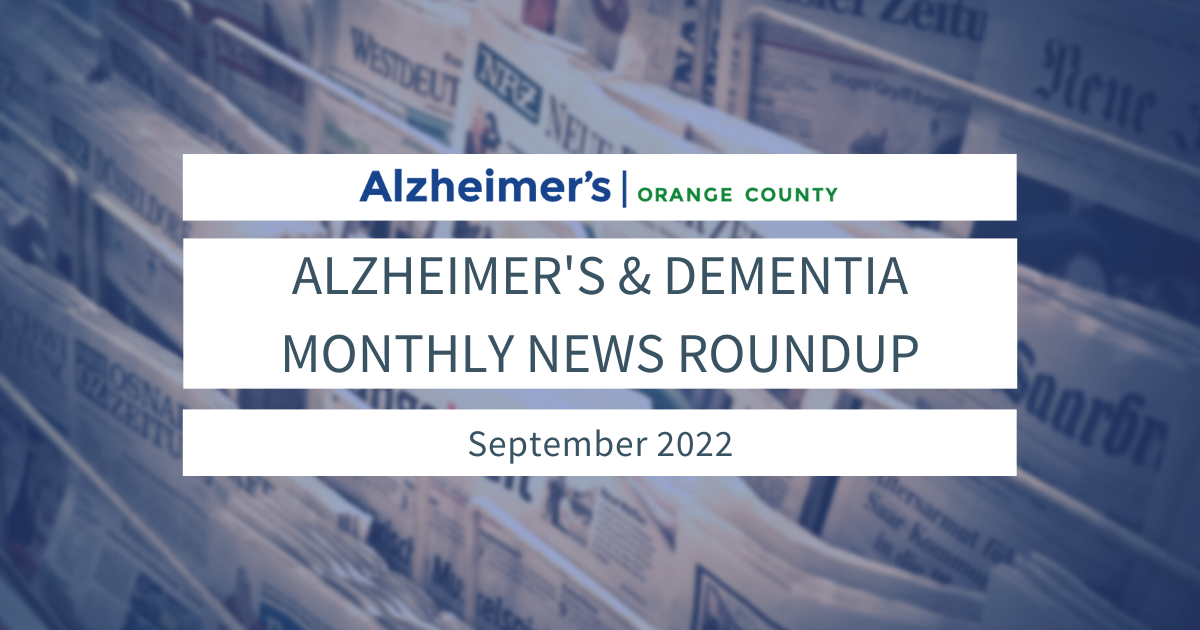A monthly recap of the latest news about Alzheimer’s and dementia
Walk this number of steps each day to cut your risk of dementia
Need another reason to walk? How much you walk may reduce your risk of mental decline, according to a new study. Read more here.
Could Ultrasound Help Detect Alzheimer’s Early?
An experimental brain imaging tool explores existing ultrasound technology as a way to detect Alzheimer’s earlier. Read more here.
What Do Cholesterol, Gut Disorders and Alzheimer’s Have in Common? Genes.
After decades of focusing on the sticky amyloid plaques and tangled tau fibers associated with the disease, brain researchers are searching for other potential causes of impaired memory and thinking. Read more here.
Genetic risk factors that underlie depression may also drive Alzheimer’s disease
Some cases of Alzheimer’s disease may be driven by the genetic risk factors that can underlie depression, according to an NIA-supported data-mining study by researchers at Emory University School of Medicine. Read more here.
Alzheimer’s disease causes major metabolic changes in the brain
A collaboration between Weill Cornell Medicine scientists and other leaders in Alzheimer’s disease research has revealed widespread metabolic changes in the brains of individuals with Alzheimer’s disease. Read more here.
Covid-19 in seniors linked to increased Alzheimer’s risk, study finds
A study using the electronic health records of more than 6 million Americans over age 65 found those who had covid-19 ran a greater risk of receiving a new diagnosis of Alzheimer’s disease within a year. Read more here.
New microprotein linked to Alzheimer’s risk discovered during USC study
Scientists discover a mutation in a newly discovered small protein that is connected to a significant increase in the risk for Alzheimer’s disease. Read more here.
Scientists show how electronic medical records may be used to learn more about Alzheimer’s disease
By searching thousands of electronic medical records, a team of NIA-funded researchers may have discovered key differences in pathology and clinical characteristics between men and women with Alzheimer’s disease, and also between individuals with and without this disease. Read more here.
Success of experimental Alzheimer’s drug hailed as ‘historic moment’
The cognition of Alzheimer’s patients given the drug, developed by Eisai and Biogen, declined by 27% less than those on a placebo treatment after 18 months. This is a modest change in clinical outcome but it is the first time any drug has been clearly shown to alter the disease’s trajectory. Read more here.


